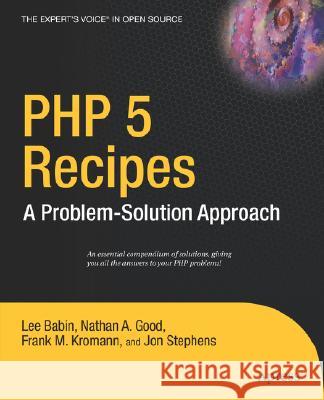PHP 5 Recipes: A Problem-Solution Approach » książka
PHP 5 Recipes: A Problem-Solution Approach
ISBN-13: 9781590595091 / Angielski / Miękka / 2005 / 650 str.
As the Internet continues to evolve, so too does the necessity for a language that addresses the functionality needs of the Internet's web viewers. Over time, some programming l- guages have come and gone, and others have continued to evolve. Several languages have moved into the lead in the race for supremacy. Although languages such as ColdFusion, ASP.NET, and CGI certainly have their advantages, PHP seems to be the developer's choice for a versatile, open-source solution. PHP has grown over the years and, thanks to its devotees, has continued to adopt the functionality most preferred by its user base. By actually listening to the developers to help guide PHP's development path, the PHP creators have introduced some impressive functi- ality over the years. However, PHP 4, while a sound developmental language and tool, was lacking on a few fronts. For instance, it had a means for developers to take an object-oriented approach, but several key pieces of functionality were not implemented, such as exception handling and session support (for objects). PHP 5 has changed all that. No longer must developers write classes that are missing functionality. Available to PHP is a full set of object-oriented development tools. Of particular note in PHP 5 is the ability to protect class variables in several ways. In addition, inheritance difficulties are now a thing of the past, and exception handling has become a nice way of t- ing care of pesky errors and validation.











